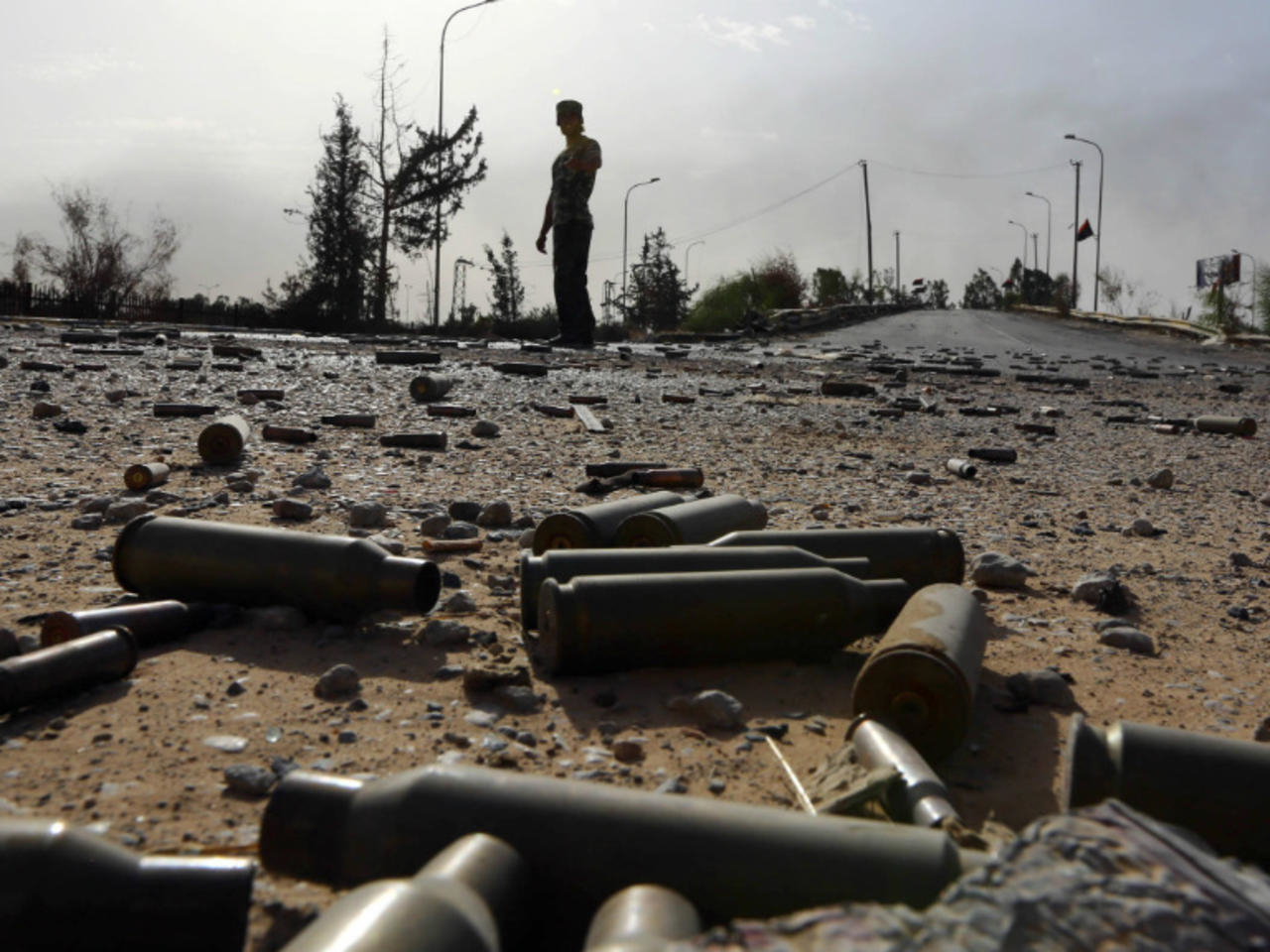Mustafa Kamel
There are new moves by militias in Libya to mobilize and incite against the Presidency Council and the Government of National Unity (GNU), with the aim of forcing them to retreat from their political positions or appointments within state institutions, which threatens to stop the executive authorities from carrying out their duties from inside Tripoli and renews the calls to adopt Sirte as the temporary capital.
Sirte as temporary capital
With the return of the call for the transfer of the executive powers to Sirte, the Libyan Cabinet issued a decision to establish a sovereign fund for the reconstruction of the city and stipulated that the city of Sirte be considered a legal persona with an independent financial liability of 1 billion Libyan dinars (about $240 million). It also stipulates that the fund should be subordinate to the Cabinet and shall be located in the city of Sirte.
Observers believe that the adoption of Sirte as a temporary capital was strongly proposed before the Political Dialogue Forum in Tunisia in November 2020, either by Parliament Speaker Aguila Saleh or by the national forces and international parties, including the United States and the United Nations. But the pledges of the influential forces in Tripoli not to harm the new authorities, whether from near or far, toppled the idea, until it became clear recently that the militias have returned to their provocative practices.
Meanwhile, Libyan Prime Minister Abdul Hamid Dabaiba confirmed that there are those who are working to push the country to war again, coinciding with reports of the attempts of political Islamist forces and their allies to obstruct the efforts made to evacuate foreign forces and mercenaries from the country and to postpone the elections scheduled for December 24.
Observers confirm that the militias that are still preventing the opening of the coastal road between the east and west of the country, despite the consensus achieved within the Joint Military Committee and the UN resolutions and calls issued by most countries of the world, are threatening the roadmap approved by the Political Dialogue Forum and adopted by the UN Security Council to resolve the crisis. The militias are using all their strength to prevent the unification of the military establishment, and they publicly refuse to evacuate foreign forces and mercenaries from the west of the country, in addition to their apparent endeavor to intimidate the national government following Foreign Affairs Minister Najla Mangoush’s positions regarding the file of foreign militants and the Presidency Council’s decision to appoint a new head of the General Intelligence Service close to the army leadership.
Weapons proliferation
Libyan Representative Mohammed al-Abani stated that the proliferation of weapons by groups that do not obey the orders of the state increases the power of the militias and the spread of insecurity and crime. He stressed that “there is neither security, nor safety, nor peace in a city heavily armed with weapons in the grip of people outside the authority of the state,” considering that the presence of militias in certain cities takes them beyond the ability to absorb the authority of the state, which needs a safe environment to interact and produce.
Militia leaders have recently returned to displaying their strength through their massive meetings at breakfast tables in cities such as Misrata, Zawiya, Gharyan and the capital, Tripoli, and to escalating the tone against the Presidency Council and the GNU, which has brought back calls for the adoption of Sirte as the temporary capital since state institutions face many difficulties in functioning from inside Tripoli, the most prominent of which is the militias’ insistence on interfering in political, financial and economic decisions and in government appointments.
Amal Bugaighis, a member of the Legal Committee of the Political Dialogue Forum, demanded that the seat of executive authority be moved to Sirte so that it would not be under the authority of armed militias. She addressed the Presidential Council and the government by saying, “Sirte is the seat of government, so do not altercate. The reality is bright, so do not put yourselves under the influence of the mob.”
Refusal to spend the budget
In this context, a member of the Libyan Parliament, Saad Mughib, criticized the government for the militias’ practices and called for not spending on the budget until Prime Minister Dabaiba reveals his position on the warlords and armed groups.
Mughib called for removing the militias from Tripoli and opening all roads that they control, noting that the warlords entered a state of suspicious and strange silence after the government gained confidence in Sirte, and they only broke this silence following the foreign minister’s statements and Presidential Council Chairman Mohamed al-Menfi’s decision to appoint a new head of the General Intelligence Service.
Mughib considered that the militia leaders were waiting to know the direction of the Presidency Council and some government ministers, and they were waiting for the budget to be approved in order to return to their old habits of extorting ministers, intimidating them and putting pressure on them. He added that they will first seek to plunder the budget in exchange for the opening of the coastal road.








































admin in: How the Muslim Brotherhood betrayed Saudi Arabia?
Great article with insight ...
https://www.viagrapascherfr.com/achat-sildenafil-pfizer-tarif/ in: Cross-region cooperation between anti-terrorism agencies needed
Hello there, just became aware of your blog through Google, and found ...